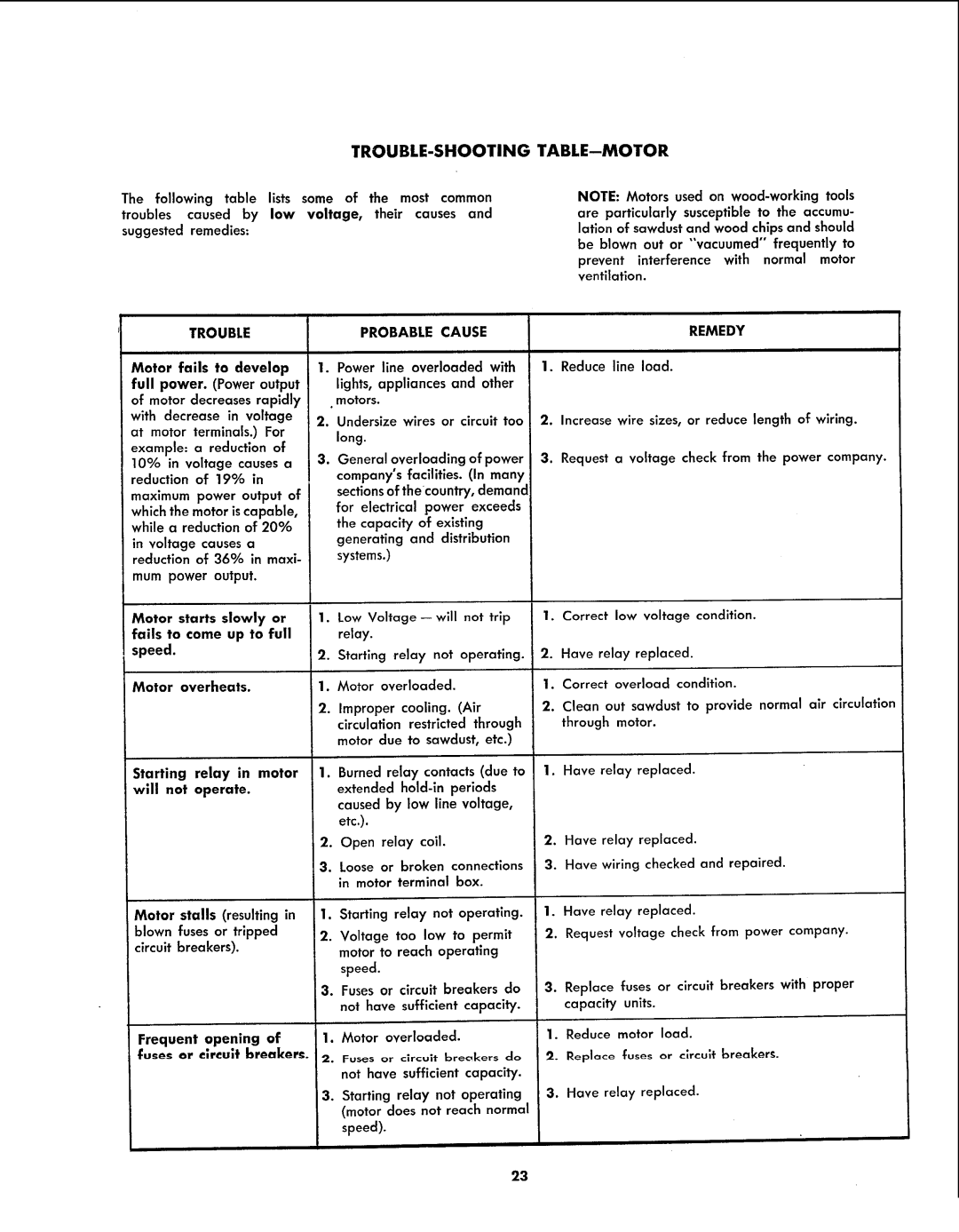
TROUBLE-SHOOTING TABLE--MOTOR
The following table lists some of the most common troubles caused by low voltage, their causes and suggested remedies:
TROUBLE | PROBABLE CAUSE |
NOTE: Motors used on
are particularly susceptible to the accumu- lation of sawdust and wood chips and should
be blown out or "'vacuumed" frequently to prevent interference with normal motor ventilation.
REMEDY
Motor fails to develop full power. (Power output of motor decreases rapidly with decrease in voltage at motor terminals.) For example: a reduction of 10% in voltage causes a reduction of 19% in maximum power output of
which the motor iscapable, while a reduction of 20%
in voltage causes a reduction of 36% in maxi-
mum power output.
1.Power line overloaded with
lights, appliances and other motors.
2.Undersize wires or circuit too long.
g. General overloading of power company's facilities. (In many sections of thecountry, demand for electrical power exceeds the capacity of existing generating and distribution systems.)
1.Reduce line load.
2.Increase wire sizes, or reduce length of wiring.
3.Request a voltage check from the power company.
Motor | starts slowly or | 1. | Low Voltage- | will | not trip | |
fails | to come up to full |
| relay. |
|
|
|
speed. | 2. | Starting relay | not | operating. | ||
Motor | overheats. | 1. | Motor | overloaded. |
| |
2.Improper cooling. (Air circulation restricted through motor clue to sawdust, etc.)
1.Correct low voltage condition.
2.Have relay replaced.
1.Correct overload condition.
2.Clean out sawdust to provide normal air circulation through motor.
Starting relay in motor will not operate.
1.Burned relay contacts (due to extended
2.Open relay coil.
3.Loose or broken connections in motor terminal box.
1.Have relay replaced.
2.Have relay replaced.
3.Have wiring checked and repaired.
Motor stalls (resulting in 1. Starting relay not operating.
blown fuses or tripped 2. Voltage too low to permit
circuit breakers).motor to reach operating speed.
3.Fuses or circuit breakers do not have sufficient capacity.
Frequent | opening of | 1. | Motor | overloaded. |
| ||
l_u_ or | e;reu;t br_ak_r_:. | 2. | Fuses | or | circuit | breakers | do |
|
|
| not have | sufficient capacity. | |||
3.Starting relay not operating (motor does not reach normal speed).
1.Have relay replaced.
2.Request voltage check from power company.
3.Replace fuses or circuit breakers with proper capacity units.
1.Reduce motor load.
_.. Replace _uses or circuit breakers.
3.Have relay replaced.
23
